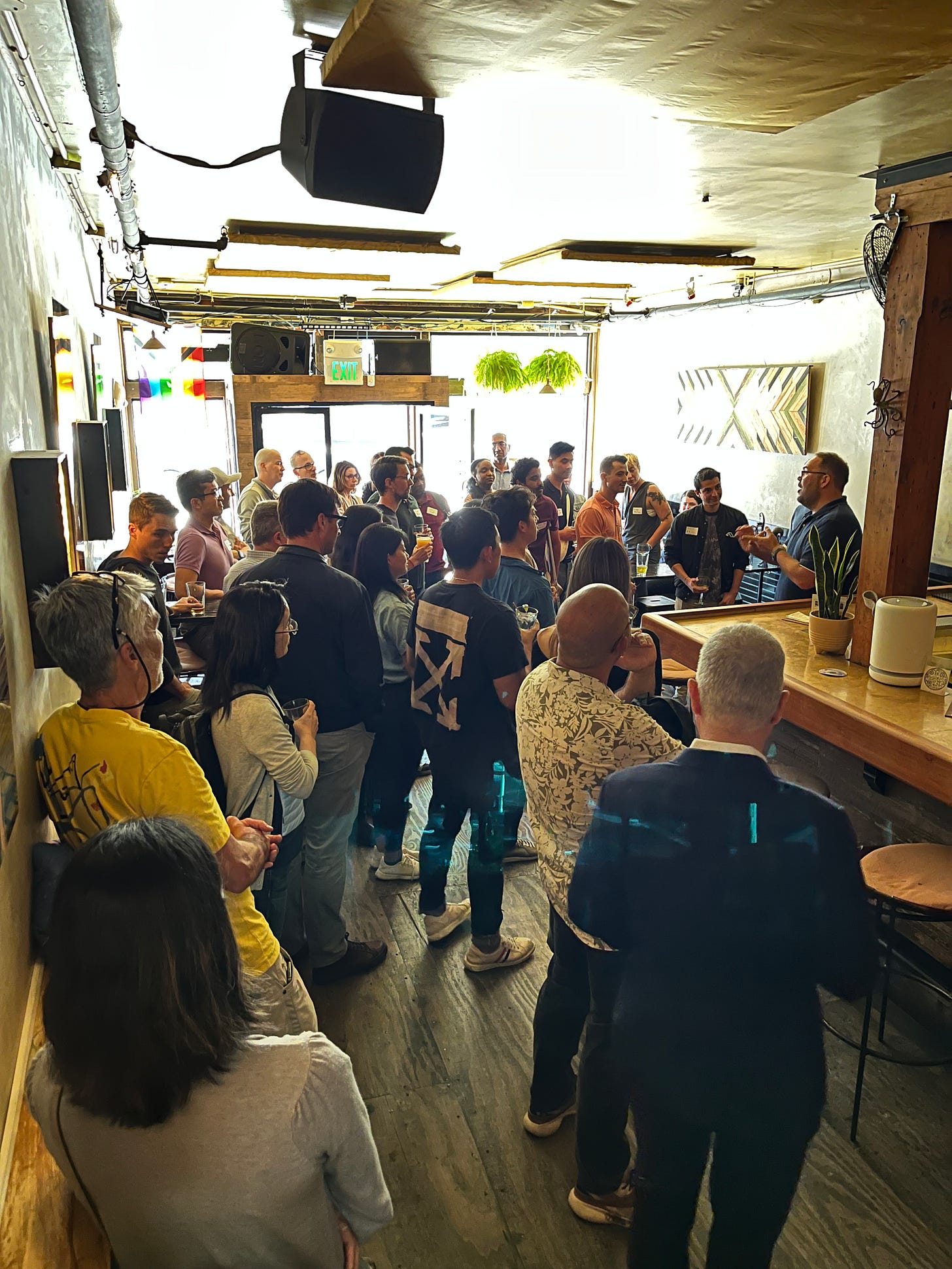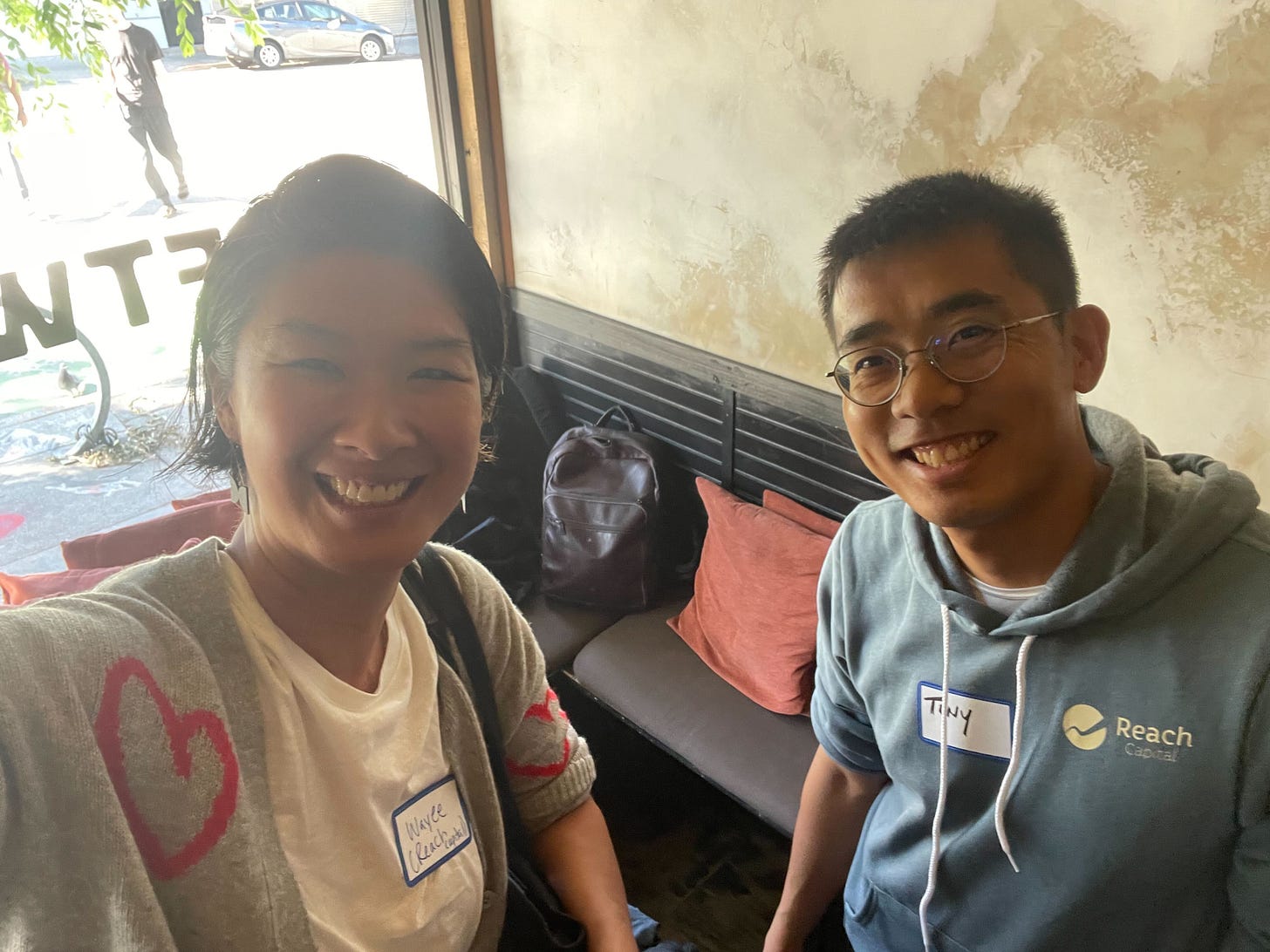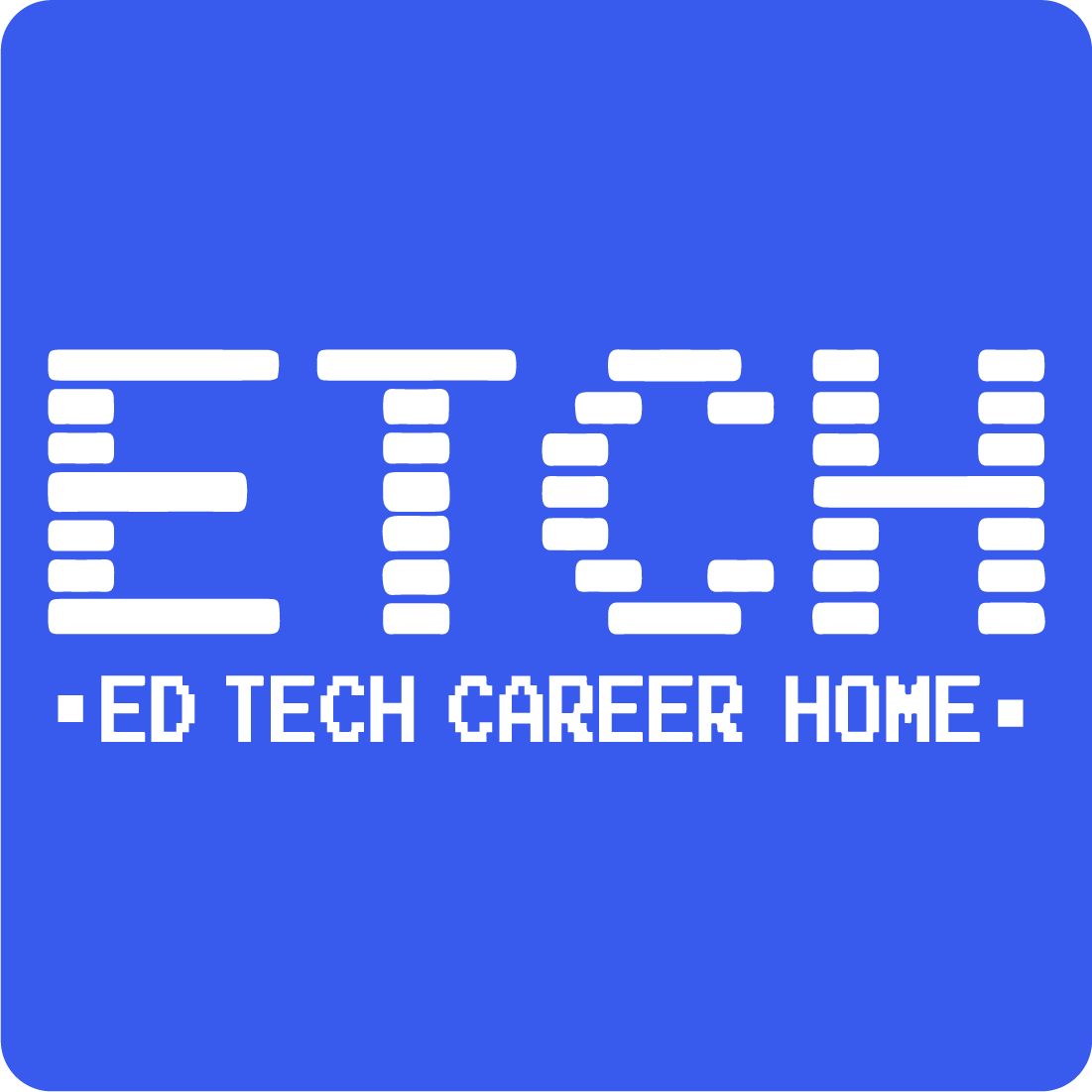THE MISSING IMPLEMENTATION LAYER FOR AI IN EDTECH
And UNESCO, OpenAI, The Edtech Insiders AI + EDU Conference, and more!
Announcing The AI + EDU Conference
We are so excited to announce that Edtech Insiders will be hosting The AI + EDU Conference on October 26 – a one day virtual conference filled with amazing panel discussions about the most pressing topics for AI in education, alongside ample time to discuss and network with other attendees.
We already have over 25 of the top voices in the AI and education sector joining us to share their insight, including:
Kian Katanforoosh, Founder and CEO at Workera
Katelyn Donnelly, Founder and Managing Director at Avalanche VC
Jamie Poskin, Founder and CEO at TeachFX
Jomayra Herrera, Partner at Reach Capital
Bodo Hoenen, CIO and Co-Founder, NOLEJ
Dr. Wayne Holmes, Associate Professor, University College London
John Gamba, Director of Innovative Programs at University of Pennsylvania
Amanda Bickerstaff, Founder and CEO at AI for Education
Rajen Sheth, Co-Founder and CEO at Kyron Learning
Ryan Craig, Managing Partner, Achieve Partners
Kavitta Ghai, Co-Founder and CEO at Nectir
Satya Nitta, Co-Founder and CEO at Merlyn Mind
Lisa Jiang, Co-Founder at Ribbon Education
…and many more!
This is just a start to the guests we already have confirmed for the day, and we’ll continue to release more speakers and details as the event gets closer.
We will be talking all day, from 9 am to 8 pm EST (6 am to 5 pm PST), and each hour focuses on a different topic in AI + EDU, with a panel or speaker and a networking session. Join us for one hour or many; all attendees will get recordings and summaries of all panel discussions.
Tickets are available starting today, at the low, low cost of $20, with special educator + student pricing, so reserve some for you and a friend! We are looking forward to seeing you all for an amazing day of learning and connection.
Edtech Insiders Live Events
Bay Area Happy Hour
We had an amazing time seeing all of you at our Bay Area Edtech Happy Hour last week! What an amazing evening of conversations, connections, brainstorming, and fun! We had over 90 attendees – wow! If you didn’t make it, stay tuned for the next one, we’d love to see you there.
Main Story: THE MISSING IMPLEMENTATION LAYER FOR AI IN EDTECH
By Ben Kornell
Over the past month, we’ve highlighted some of the dynamics that are accelerating the potential impact of AI in education: new business models, enabling technologies, and investor theses. Today, we’ll focus on what we call the ‘implementation layer’ - where potential meets actual practice.
But first, let’s take a moment to examine the AI landscape in this back-to-school season.
A MARKED SHIFT IN PERCEPTION ABOUT AI IN EDUCATION
As we settle into the fall semester, one thing is clear for both educators and students, and across both K12 and Higher Ed - AI is here to stay. While the increasing student usage of AI tools, both outside and inside class, is not news, the shift in outlook from schools has been profound.
Specifically, educator opinion has shifted markedly: from a generalized fear of cheating and job loss in February to a widespread view that AI is an educational imperative in September. Just six months ago we were seeing ChatGPT bans and a surge in AI plagiarism detectors; now districts across the country have done an about-face, pivoting to an ‘experimentation’ mode.
This summer, The Walton Family Foundation surveyed opinions around ChatGPT as a stand-in for AI overall… and the numbers were encouraging:
63% of teachers say they’ve used ChatGPT for their job - up 13 points from when asked in February (50%).
Four in 10 teachers report using it at least once a week (40%).
All groups surveyed give ChatGPT a net-positive favorable rating, with both parents and teachers even more positive than students
Parents: 61% favorable / 17% unfavorable
Teachers: 58% favorable / 24% unfavorable
Students: 54% favorable / 20% unfavorable
And, in a clear sign of a shift in opinion, 61% of Teachers say AI will have legitimate educational uses that we cannot ignore, versus just 23% who believe it will likely only be useful for students to cheat.
Meanwhile, error rates and inherent bias have all but killed the AI detector industry, with even Open AI pulling their detector this summer. We already saw record-breaking market adoption, and now we’re seeing a major shift in perception - both remarkable for technology that just 12 months ago was virtually unknown to the public.
2023-24: THE YEAR OF THE GRAY AREA
While the increasing acceptance and enthusiasm for AI among teachers and parents points to a growing comfort with AI tools in school contexts, the on-the-ground reality is not keeping up. We’re still in the early innings of the AI Revolution, and stepping into school can show just how far we have to go to leverage AI to truly support learners, educators, and systems.
So far, despite the positive vibes we have primarily seen scattershot implementation, vague sets of guidelines, recommendations and “best-practices,” and ultimately an uneven impact on teaching and learning.
Effective utilization and adoption are hindered in three areas:
1. Limited legal or policy guidelines
When AI dropped in the middle of the last school year, banning ChatGPT and restricting AI was by far the easier policy move. Now that banning this tech is untenable (and increasingly viewed as inequitable), schools and educators are tiptoeing into a very gray area.
For example, popular tools like ChatGPT (and all the tools that use its APIs to power their systems), are officially not for kids 12 and under, and require parent consent for 13-18 year olds. How many districts are actually following through on that policy? And if they did, would that actually hinder equity and impact?
2. The flood of new AI Edtech tools and new AI features inside existing tools, is overwhelming.
For most educators and administrators (as well as us Edtech observers), it is virtually impossible to keep up with the suite of new tools available, let alone the models that undergird them. In the face of overwhelming information, the natural stances are:
Wait-and-see:. Why adopt new tools now when capabilities improve every 3-6 months? And what if regulation is coming?
Stick with what I know: AI is getting infused into everything; I’ll stick with current systems and hope they build AI features for me and my learners.
Start with the safest, simplest tasks. I don’t know how AI can transform teaching and learning, but it seems to be able to help me generate a lesson plan!
3. Lack of professional development & support on how to leverage AI effectively.
Most school and educator adoption at this point comes from word-of-mouth and peer recommendations, in the absence of relevant research or even a clear pedagogical perspective.
PD providers are also trying to learn the new tech / tools and navigate the uncertainty of what is ‘sanctioned’ versus ‘unsanctioned’ use.
IS THIS A PROBLEM? OR AN OPPORTUNITY?
Gray areas like this may give the average school superintendent heartburn, but they are also a unique opportunity for a nascent, but accelerating, services layer focused on helping districts, educators and students leverage AI effectively and safely..
How that services and training layer evolves is likely to be incredibly important in determining which tools scale and which don’t… and yet, to this observer, the PD space is somehow even more of a Wild West than our AI ecosystem. Why?
PD MARKET CONDITIONS
The ‘tech implementation support’ space is wide open. The last decade has seen many edtech companies move toward self-serve product implementation, as everything from curriculum to math apps have eschewed the high-cost of onsite implementation in favor of leaner, product-driven support. This type of service can be effective, even great, for supporting a single product, but it leaves a huge vacuum for multi-product support.
Acceptance and Growth of Virtual Training: Post-COVID, educators are much more open to (and accustomed to) virtual development and training support, meaning that modern PD is infinitely more scalable than the pack-your-suitcases approach.
Professional Development hasn’t shown meaningful ROI:The fact is that school districts spend 6-8% of their budget on PD and only 1-2% on tech…and that PD investment has rarely demonstrated a positive (or sometimes, even a measurable) ROI.
In fact, a landmark The New Teacher Project (TNTP) Study in 2015 found that the top 50 districts wasted $8B annually on teacher development that showed little to no impact on effect on improving classroom practice.
PREDICTION: THE NEXT GENERATION OF PD WILL BE ALL ABOUT LEVERAGING AI
This huge market gap has allowed some clever and intrepid organizations to step in to fill this void temporarily:
Code.org, Khan, ETS and ISTE have combined to create AI 101 for Teachers, teaching recommendations and resources around AI
OpenAI itself recently released guidelines for teachers, mostly informed by the work of Ethan Mollick (one of our faves).
TeacherTwitter, TeachTok, and YouTube are abuzz with with bite-sized tips, tricks, and hacks.
Edtech companies are busy creating videos and listicles about the best ways to use AI in Education, which often happen to include their particular tool :P
All this to say… we’re still really in the dark ages when it comes to AI-informed pedagogy. The white space in true implementation really is the story of unchecked demand and almost no supply.
Two leading AI-focused PD organizations that have emerged are aiEDU and AI for Education. Both organizations offer webinar-based and in-person support for educators, districts, and schools who are looking to leverage AI for their own efficiency, and both also offer curriculum and prompt libraries that help educators incorporate AI into lessons for students.
These non-profits have, by jumping into the void, become leading voices. At a recent event in LA, I joined a conversation with aiEDU’s CEO Alex Kotran and LAUSD Superintendent Alberto Carvalho, where the big takeaway was ‘AI Education’ is an equity issue, a universal right for all students. The entire event, from the support of AI from large districts, to the existence of third-party champions of implementation, literally could not have happened just one year ago.
Our Edtech Insiders interview with Amanda Bickerstaff from AI For Education comes out shortly, and she is moderating one of our panels about AI-based teaching tools at the AI+EDU Conference in October.
So what do we need to see in this implementation layer in order to deliver on the potential of AI in education?
A GEEK SQUAD FOR AI IN EDUCATION
We need support organizations that have the ability to:
Support scaling of AI tools across the Rogers adoption curve
Partner with district technology staff to build nimble infrastructure, monitoring, and local support for new AI tools and practices
Help educators adopt new practices alongside the new tooling, moving from Substitution -> Augmentation -> Modification -> Redefinition
Support a wide range of tools & products from many different companies, and not just one tool or suite
Keep up-to-date on the latest AI so that users gets the most current benefit, with particular attention to tools that serve special education, ELLs, and other underserved groups
Inform districts of the data and security policies underlying each tool and underlying LLM
Help when things go wrong and manage the sizable risks
Provide actionable feedback to companies in order to improve their AI products
Most current Professional Learning organizations lack these core competencies. Heck, most organizations lack these capabilities, period. But the point remains: we need more of a Best Buy ‘Geek Squad’ for education to truly assist with the transition to AI-native education.
WHAT’S AT STAKE
If our schools and systems don’t have an implementation support layer, they will not achieve the true potential of AI in education: streamlined workflows for educators that amplify their impact and personalized learning systems that tailor and accelerate learning based on students interests, skills, and needs. Today’s AI in schools is just scratching the surface.
Scaling that layer effectively will also have profound impacts on the equity gap. Our current scattershot approach increases the odds that we will have greater disparity in learning outcomes based on income and race.
2023-24 will be a year where so many companies will be judged based on which AI tools stuck and which ones didn’t. The pace of change, the drumbeat of new entrants, and the overwhelm felt by most schools make for a daunting marketplace to demonstrate long-term traction. It reinforces the time tested wisdom in K12 that ‘those that implement best’ are most likely to win. And yet our implementation layer is incredibly thin and fragmented.
Who will figure out the right scalable partnerships, strategies, and practices to bring AI transformation to schools? I have my popcorn ready!!
Btw, we didn’t even touch on the direct to consumer play for an implementation layer…
Top Edtech Headlines
1. Byju’s Looking to Repay $1B in Debt by Selling Epic! and Great Learning
Byju’s, once India’s most valuable startup of any kind and one of the very largest Edtech firms in the world, made headlines again this week when they announced that they were looking to repay $1B in debt over the next 6 months, with $300m payment over the next three months.
A quickly following story, first in Indian tech media and then Bloomberg states that Byju’s is looking to raise these funds by selling two of its major acquisitions, digital reading app Epic! and online university-partnered course provider Great Learning.
What can we say? Byju’s continues to make swashbuckling/desperate moves in order to maintain its status and valuation (and to raise even more funding), after seeing half of its board throw their hands up and walk out earlier this year. There’s no question that Byju’s is up against the ropes- but is it the Comeback Kid or the Has-Been Heavyweight?
2. Reach Capital releases Market Map of 280+ AI Edtech Companies
Reach Capital, one of the handful of leading Edtech-focused investment firms in the world, put out a fascinating market map of AI Edtech companies this week.
The Reach AI + Learning Catalyst program has put Reach investors up close to the next generation of AI tools, and they are starting to really make sense of a very complex landscape.
Some cool excerpts from the report:
In case you were wondering, our upcoming AI+EDU conference brings together many of the founders of the companies in this report. Just saying.
3. OpenAI and UNESCO Releases Guide for Educators
OpenAI just released Teaching with AI, a guide for educators on how to use ChatGPT in their classroom which offers suggested prompts, an explanation of how ChatGPT works and its limitations, the efficacy of AI detectors, and bias among other topics.
This is a really interesting bid that OpenAI is making to educators, acknowledging that their tool is already being used in classrooms and the multitude of complexities that exist around implementing AI tools effectively and ethically in the classroom.
UNESCO recently published Guidance for Generative AI in Education and Research, a paper suggesting next steps to be taken worldwide to respond and prepare for the current moment of AI technology, including mandating the protection of data privacy, and setting an age limit for the independent conversations with AI platforms.
This is just one example of an internationally recognized group beginning to take a stand in expectation of the oncoming revolution AI will bring, and we expect to see more of this soon.
4. Education, AI, and Extended Reality (XR)
Fortune Education recently interviewed Jessica Lindl, the VP of Education and Social Impact at Unity, to talk about the future of education, the role AI technology will play in it, and how extended reality (XR) technologies including virtual, augmented, and immersive realities will be intertwined in these technological advances. It’s interesting to see what Jessica Lindl has to say about this particular crossover of tech in education use cases.
Unity, the creator of one of the leading 3D gaming and graphics engines in the world, has quietly been building inroads into education for years; as both a professional tool and a video-game and special effects film tool, it has serious crossover appeal for educators and students. It also offers gamified self-guided pathways for students of all ages.
While AI in education is clearly hogging the spotlight, AI technologies that also coincide with XR technologies are not yet trending, even though its pretty clear that immersion and gaming will be an enormous use case for AI. We expect that to change as soon as a few exciting use cases emerge (e.g., when the next Nintendo epic allows users to ask Mario to write them a sonnet).

5. Office of Educational Technology on Accessibility
The U.S. Department of Education’s Office of Educational Technology (OET) recently hosted a series of conversations with educators and learners with disabilities at an accessible Edtech event in partnership with New America.
Through this event, several key learnings for Edtech companies have been compiled into a few short documents that are definitely worth reading:
As AI and Edtech continue to advance at a rapid pace, it is more important than ever for Edtech companies to prioritize equity and accessibility to create the positive impact we hope to see with these new tools. Check out the findings from this event, an amazing way to hear directly from learners what they are needing from new edtech tools.
This Newsletter Is Sponsored by Magic Edtech
Magic EdTech has helped the world’s top educational publishers and Edtech companies build learning products and platforms that millions of learners and teachers use every day. Chances are that you're probably using a learning product that they’ve helped design or build!
Companies like Pearson, McGraw Hill, Imagine Learning, American Museum of Natural History have used their help to design or build some of their learning products. Now, Magic wants to bring its pedagogical and engineering expertise to make your key learning products accessible, sticky, and well-adopted.
Recent Edtech Insiders Podcast Episodes
If you haven’t listened yet, make sure to catch all our recent interviews on The Edtech Insiders podcast including:
Heather Combs, CEO of Straightline on how to best serve the modern era of college goers by providing accessible, for credit classes that integrate smoothly with existing higher education institutions.
Deepak Sekar and Maria Walley, Co-Founders at Prof Jim on the launch of their cinematic textbook AI tool Reelbooks 2.0.
Marco DeRossi, founder and CEO of WeSchool on how education can be transformed through access to collaborative digital tools.
Funding, Mergers, and Acquisitions
Our latest reporting on funding, mergers, and acquisitions comes from Matt Tower’s publication Edtech Thoughts. Matt does an incredible job of covering the latest funding, news, industry updates, and more! If you love Edtech Insiders, be sure to subscribe to Matt’s newsletter as well.
Funding
Ello raises $15M / US, Literacy / Goodwater Capital, Common Sense Growth, Homebrew, Ravensburger, Y Combinator, WndrCo, Reach Capital, Visible Ventures, Khosla Ventures
Firstcard raises $4.7M / US, Financial Services / AngelList Early Stage Quant Fund, CyberAgent Capital, East Ventures
Mentra raises $3.5M / US, Talent Management / Hydrazine Capital, Shine Capital, Verissimo, Full Circle, Charlotte Fund
Athena Alliance raises $2.5M / US, Professional Networking / Leonas Capital
Koios raises $550K / UK, Assessments / Seedcamp, Evolvient Ventures
Speak raises $16M / US, Language Learning / Lachy Groom, OpenAI, Neo, GSV / ETCH Assessment
Sizzle AI raises $7.5M / US, Tutoring / Owl Ventures, 8VC
Confirm raises $6.2M / US, Employee Management / Spero Ventures, SHRMLabs, Elefund, Gaingels, Black Angel Group
Varthana raises $2.5M / India, Student Financing / Symbiotics Investments
MagicSchool.ai raises $2.4M / US, Professional Development / Range Ventures, GSV, Rethink Education, Charter School Growth Fund, Gary Community Investments, Transcend Fund, Edovate Capital
GradRight raises $600K / India, Student Finance / IvyCap Ventures
Acquisitions
PowerSchool acquires Neverskip / US, Software Infrastructure
Mezure Learning acquires Examity / US, Proctoring + Assessment
SkillArbitrage acquires Dataisgood for $3M / India, Upskilling
Dreambox Learning acquired by Discovery Education / US, K12 Curriculum
Thanks for reading Edtech Insiders! Subscribe for free to receive a newsletter in your inbox twice a month and support our work!




















This is GOLD! Thanks for compiling
SO MUCH GOOD CONTENT HERE!